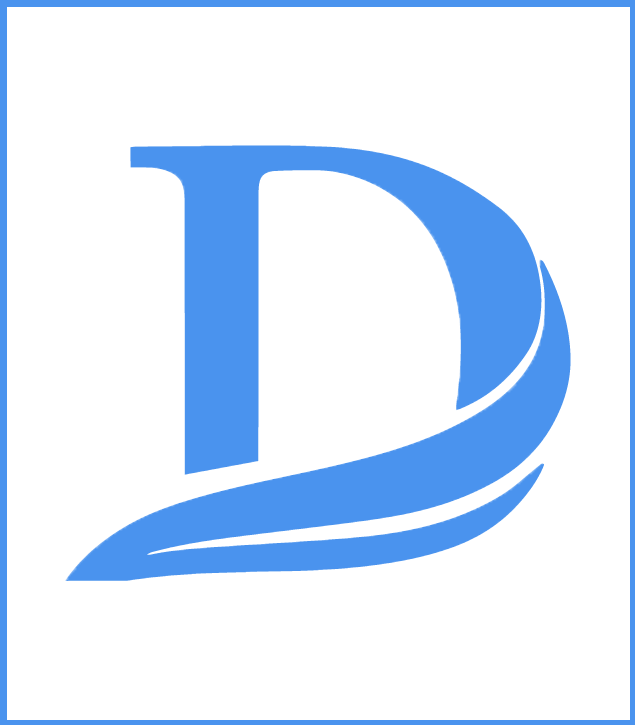Why Choose DSDT for Full Stack Development?
In today’s digital age, the demand for skilled full stack developers is at an all-time high. These professionals, adept at both front-end and back-end development, are pivotal in creating seamless web applications. The Full Stack Developer Program at DSDT (Detroit School for Digital Technology) offers a comprehensive pathway to mastering these skills, preparing students for dynamic careers in the tech industry.
Comprehensive Curriculum Tailored for Success
DSDT’s Full Stack Developer Program is meticulously designed to equip students with the knowledge and practical skills necessary to develop robust applications. The curriculum encompasses a blend of programming languages and frameworks, ensuring a well-rounded education.
Core Courses:
- Python I & II: These courses introduce students to Python scripting, covering basics to advanced topics like web scraping, networking, and automation.
- JavaScript I & II: Students delve into JavaScript fundamentals, exploring functions, variables, DOM manipulation, and advanced concepts like Ajax for asynchronous server communication.
By focusing on both Python and JavaScript, students gain versatility in handling various development tasks, from scripting to interactive web functionalities.
Hands-On Learning Experience
Understanding that practical experience is crucial, DSDT emphasizes hands-on learning throughout the program. Students engage in interactive applications, virtual lab sessions, and real-world projects that mirror industry scenarios. This approach ensures that graduates are not only theoretically proficient but also practically adept at tackling real-world challenges.
Assignments and lab activities are integrated into the curriculum, allowing students to apply concepts in controlled environments. Weekly assessments and daily evaluations via platforms like Canvas LMS help track progress and reinforce learning.
Flexible Learning Options
Recognizing the diverse needs of students, DSDT offers flexible learning modalities:
- Online Classes: Students can attend classes virtually, providing the convenience to learn from anywhere.
- Instructor-Led Lectures: Live sessions facilitate real-time interaction, fostering a collaborative learning environment.
- Virtual Labs: Hands-on practice through virtual labs ensures that students can experiment and learn without geographical constraints.
This flexibility caters to working professionals, students with other commitments, and those who prefer a self-paced learning approach.
Career Support and Opportunities
DSDT is committed to student success beyond the classroom. The institution provides robust career support services, including job placement assistance and resume building workshops. Graduates are well-prepared to pursue roles such as:
- Full Stack Web Developer
- Software Engineer
- Front-End Developer
- Back-End Developer
- DevOps Engineer
- Application Developer
The program’s emphasis on both front-end and back-end technologies ensures that graduates have the versatility to adapt to various roles in the tech industry.
Accreditation and Recognition
DSDT is accredited by the Commission of the Council on Occupational Education, affirming its commitment to maintaining high educational standards. This accreditation ensures that the curriculum is relevant, comprehensive, and aligned with industry requirements.
Affordable and Transparent Tuition
Understanding the financial considerations of education, DSDT offers a transparent tuition structure. The Full Stack Developer Certification program totals $16,500, equating to $51.56 per clock hour for 320 clock hours. This clarity allows students to plan financially without unexpected costs.
Additionally, DSDT provides various financial aid options and flexible payment plans to accommodate different financial situations.
Admission Requirements
DSDT’s admission process is designed to be accessible:
- No Application Fee: Students can apply without any financial commitment.
- No Standardized Tests: SAT or ACT scores are not required.
- No Essays: The application process is straightforward, focusing on the student’s interest and commitment.
This inclusive approach ensures that aspiring developers from various backgrounds have the opportunity to pursue their passion.
State-of-the-Art Learning Tools
To enhance the learning experience, DSDT incorporates modern tools and platforms:
- Canvas LMS: A robust learning management system for course materials and assessments.
- Practice-Labs: Provides virtual environments for hands-on practice.
- Microsoft Azure: Exposure to cloud computing platforms.
- React, Swift, Xcode: Training in contemporary development frameworks and tools.
These resources ensure that students are proficient with the tools commonly used in the industry.
Support for Veterans and Military Personnel
DSDT honors the service of military personnel by offering dedicated support:
- Free Tuition: Available through VA education benefits.
- Accelerated Training: Programs designed for a swift transition to civilian careers.
- Job Placement Assistance: Connections with military-friendly employers.
This support ensures that veterans and transitioning military members have the resources and opportunities to succeed in the tech industry.
How to Apply
Embarking on a journey to become a full stack developer with DSDT is straightforward:
- Visit the Program Page: Explore the Full Stack Developer Program details at https://dsdt.edu/programs/full-stack-developer-program/.
- Apply Online: Submit your application through https://dsdt.edu/apply/.
- Consult an Academic Counselor: Receive guidance on course planning and scheduling.
- Begin Your Journey: Start classes and take the first step towards a rewarding career in full stack development.
Choosing DSDT for your full stack development education means investing in a program that combines comprehensive curriculum, practical experience, and unwavering support. Whether you’re starting your tech career or looking to upskill, DSDT provides the tools and guidance to help you succeed.











